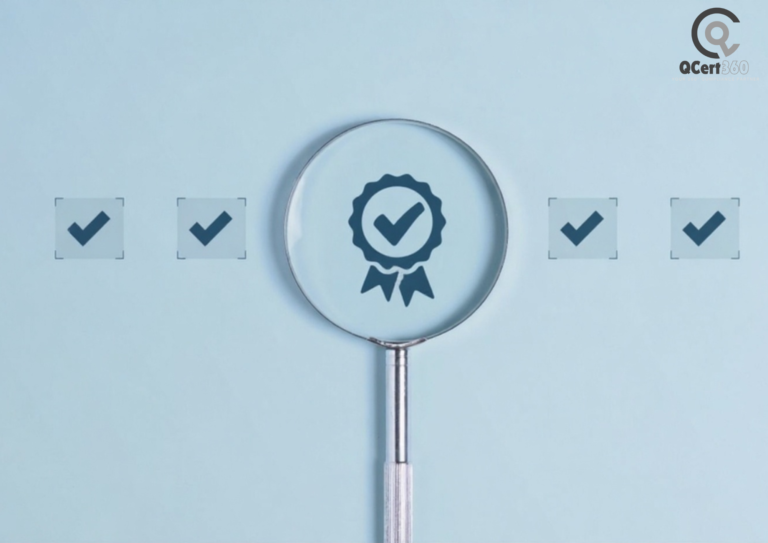
If you’re planning to export products in 2025, here’s something you need to understand early: ISO certification isn’t just a quality badge. It’s often the baseline requirement to even get your goods through customs or onto procurement shortlists—especially in regulated markets like Europe, the Gulf, and key African countries.
Let’s unpack which ISO standards are actually required, how they differ depending on your target regions, and what smart exporters are doing to stay ahead of the compliance curve.
Required ISO Standards for Exporting: Why ISO Certification Matters More Than Ever
Exporting today isn’t just about logistics. It’s about proving to foreign buyers, customs authorities, and industry regulators that your business meets internationally accepted standards.
In Europe, ISO compliance is often directly tied to product acceptance. In Gulf countries like the UAE and Saudi Arabia, it helps businesses qualify for government tenders and meet local market access rules. Across Africa, especially in places like Kenya, Ghana, and South Africa, ISO-certified exporters are simply taken more seriously.
Put another way—if you want to win contracts, avoid shipment delays, and grow in these regions, you need to treat ISO certification as a passport, not a formality.
ISO 9001: The Universal Starting Point
Whether you’re exporting electrical components, garments, health supplements, or SaaS platforms, ISO 9001 for international trade compliance is the default requirement. It proves your company has a functioning quality management system and can deliver consistent results.
Buyers across Europe and the Gulf often won’t even consider a proposal without seeing an ISO 9001 certificate attached. For SMEs, this is typically the first certification you should prioritize, especially if you’re looking for affordable ISO certification for SMEs exporting globally.
ISO 22000: Food Exports to the Middle East and Africa
The Gulf states, along with the EU, maintain strict regulations around food safety. Whether you’re exporting dried fruits to Saudi Arabia or packaged snacks to Germany, ISO 22000 for food exports to Middle East and Africa is becoming a minimum threshold.
This standard aligns with HACCP principles and demonstrates your ability to control food safety hazards throughout the supply chain. Without it, you risk customs delays or rejection by large distributors.
ISO 13485: Medical Device Exports to Europe
Exporters in the health and medtech sectors need to play by even tighter rules. Europe, under its MDR (Medical Device Regulation), demands high documentation, traceability, and testing standards.
ISO 13485 for medical device exports to Europe is what shows you meet these expectations. If you’re manufacturing diagnostic kits, wearables, or even health-monitoring software, you’ll need this certification before your product sees a European shelf—or hospital.
It’s also worth noting that some African countries are beginning to adopt these same expectations, especially for government health procurement.
ISO Certification for Gulf Countries Exports
Each Gulf country has its nuances, but the UAE, Saudi Arabia, and Qatar all heavily lean on international standards. ISO certification for Gulf countries exports is increasingly baked into their supplier vetting processes.
If you’re in construction, engineering, or energy-related fields, ISO 45001 for occupational health and safety is commonly requested. If you’re selling electronics or industrial goods, ISO 14001 may be required for environmental management, particularly for contracts involving government projects or sustainable development zones.
ISO for African Market Entry 2025
Africa is one of the fastest-growing trade frontiers. Markets like Nigeria, Kenya, Ghana, and South Africa are modernizing rapidly—and importing a lot.
That said, these regions are also increasing their focus on compliance and safety. ISO for African market entry in 2025 is no longer optional if you want to work with larger distributors or win tenders. Expect ISO 9001 to be requested by nearly all procurement departments, while ISO 22000 or ISO 45001 may come up depending on your product type.
Required ISO Standards for Exporting to EU Market Access
The EU remains one of the most stringent markets in the world. Alongside CE marking (which applies to the product), EU importers look for robust quality systems.
Here’s what’s typically expected:
- ISO 9001 for general quality assurance
- ISO 13485 for medical products
- ISO 22000 for food-related goods
- ISO 14001 for products affecting the environment
Required ISO standards for EU market access also vary depending on the country and industry. German buyers may expect deeper documentation, while the Netherlands may ask for sustainability commitments embedded within your QMS.
How to Export with ISO Certification in 2025
Here’s the reality: ISO certification is no longer a “wait until we grow bigger” decision. If you want to export in 2025, certification needs to be part of your go-to-market strategy.
Here’s how exporters are getting it right:
- Start with a Readiness Gap Analysis
Understand which ISO standards apply to your products and where your company stands. - Work With Industry-Specific Experts
If you’re in food, get a food safety consultant. If you’re in electronics, find someone who understands ISO 9001 and 14001 in that context. - Bundle Where It Makes Sense
Combining certifications (e.g., ISO 9001 and ISO 22000) saves both time and cost. - Don’t Over-Certify
Just because a standard exists doesn’t mean you need it. Focus on what your buyers, regulators, and tender specs require.
Real-World Example: Ghanaian Cosmetic Exporter Cracking the EU Market
A cosmetic brand in Accra wanted to expand to Germany and the Netherlands. They had organic formulations and great packaging, but EU distributors kept passing.
After reaching out to Qcert360, we identified the missing link: ISO 22716 for Good Manufacturing Practices.
We worked with them to build proper SOPs, hygiene controls, and traceability documentation. Within four months, they earned ISO 22716, and three weeks later, they signed their first European distribution deal.
Qcert360: Helping Exporters Get ISO Certified Without Wasting Time or Money
At Qcert360, we’ve helped hundreds of companies across Africa, the Middle East, and Asia get ISO certified for international expansion. Whether you’re a bootstrapped SME or scaling fast, our consultants understand what certifications actually matter for your target market.
We focus on lean documentation, affordable implementation plans, and hands-on audit prep—so you can get certified and start exporting, fast.
Need help with CE marking alongside ISO? We’ve got you covered there too.
Final Thought: Required ISO Standards for Exporting
Here’s the bottom line—ISO certifications are no longer a “nice-to-have” for exporters. They’re the key to access. But the trick is knowing which ones unlock the doors you want to walk through.
Do it right, and ISO certification doesn’t just help you cross borders—it helps you close deals.
FAQs
- Is ISO certification mandatory to export to Europe or the Gulf?
Not always—but for certain sectors (food, medtech, electronics), it’s effectively required. - Which ISO standard is best for general exports?
ISO 9001. It’s the most commonly requested and globally recognized. - Do I need ISO for every product line I export?
Not necessarily. Often a single ISO system can cover multiple product types. - How much does ISO certification cost for exporters?
Costs vary by company size and scope, but Qcert360 offers affordable packages for SMEs. - Can I get ISO certified without external consultants?
It’s possible, but not advisable. You risk audit failure and long delays. - Which ISO is needed for food products?
ISO 22000 or HACCP, depending on the country and buyer. - How long does ISO certification take?
Typically 6 to 12 weeks, faster if you’re well-prepared or use a consultant. - Can I combine ISO certification with CE marking?
Yes. In fact, ISO often forms the backbone of CE compliance. - Which ISO do I need for exporting to Africa?
ISO 9001 is a safe bet. Depending on your sector, ISO 22000 or ISO 45001 might also apply. - Will ISO certification help me win tenders?
Absolutely. Most public and private buyers require it as part of the evaluation process.


